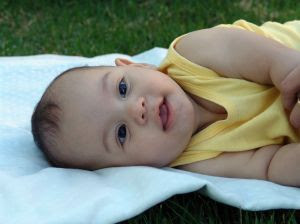Babies born from frozen embryos are heavier and have longer gestation periods than those from fresh embryos
 6 January 2012 - New research presented today at the British Fertility Society Annual Meeting shows that babies born using assisted reproductive technologies (ART) from frozen embryos are heavier and have longer gestation periods than babies born using ART from fresh embryos. This suggests that frozen embryo transfer may lead to healthier babies, as birth weight and gestation period are positively related to successful birth outcomes and long-term health.
6 January 2012 - New research presented today at the British Fertility Society Annual Meeting shows that babies born using assisted reproductive technologies (ART) from frozen embryos are heavier and have longer gestation periods than babies born using ART from fresh embryos. This suggests that frozen embryo transfer may lead to healthier babies, as birth weight and gestation period are positively related to successful birth outcomes and long-term health.
Suzanne Cawood and her team at the Centre for Reproductive and Genetic Health in London studied whether gestation period and birth weight varied between babies born following fresh embryo transfer compared to those born after frozen embryo transfer. They measured the weight at birth and gestation length of 384 infants born after fresh embryo transfer and 108 infants born after frozen embryo transfer. All pregnancies measured were singleton babies (i.e. no multiple pregnancies were included in this study).
Single babies born from frozen embryo transfer were significantly heavier at birth compared to those born from fresh embryo transfer (253g heavier; p less than 0.001). Babies from frozen embryos also had a significantly longer gestation period compared to those from fresh embryos (0.649 weeks longer; p=0.01). The percentage of babies born with a low weight (less than 2500g) was significantly lower following frozen compared to fresh embryo transfer (3.7% vs. 10.7%; p=0.024). These findings suggest that transferring frozen embryos may lead to healthier babies (i.e. higher birth weights and longer gestation periods) than transferring fresh embryos. The reasons behind these findings are unclear and the team now intend to carry out further research on this issue and to investigate if other factors such as pregnancy complications or birth defects vary in frequency between fresh and frozen cycles.
Lead researcher, Miss Suzanne Cawood, Deputy Head of Embryology at the Centre for Reproductive and Genetic Health, London said:
“For all assisted reproduction technologies, it is important that we ensure the procedures promote optimal health in the resulting children throughout their lives.
“Our study suggests that babies born from frozen embryos have a significantly longer gestation period and are significantly heavier at birth compared to babies from fresh embryos. This is important because prematurity and low birth weight are both risk factors for poorer health later in life and are linked to higher rates of behavioural and learning difficulties. This means that resulting babies may potentially be healthier if frozen embryos are transferred rather than fresh embryos.
“The reasons behind these findings are not yet fully understood, but one possibility may be that there is a difference in the uterine environment between fresh cycles, when embryos are transferred soon after the eggs have been collected, compared to frozen cycles when the uterus has not been stimulated in the days before transfer. However, further research is needed to test this hypothesis.”
When a woman undergoes ART, she is given fertility drugs to stimulate her ovaries to produce more eggs than usual. The eggs are then fertilised with sperm to produce embryos. Currently, usually one or two of these embryos are transferred back into the womb three to six days after egg collection. If there is a surplus of healthy embryos, some may be frozen for use in subsequent ART treatment if needed. This means that the embryos are stored at -196°C, before being thawed to 37°C for use.
The 2010 HFEA national records using data collected from all fertility clinics shows that the pregnancy rate for fresh embryo transfer from a woman’s own eggs is 33.4% compared to 22.8% for frozen embryo transfer1.
1 Human Fertilisation and Embryology Authority. Fertility treatment in 2010: trends and figures
http://www.hfea.gov.uk/docs/2011-11-16_-_Annual_Register_Figures_Report_final.pdf.
The British Fertility Society is a national multidisciplinary organisation representing professionals practising in the field of reproductive medicine. The British Fertility Society is committed to promoting good clinical practice and working with patients to provide safe and effective fertility treatment.
Photo credit: mirichi
TODAY'S BOOK SUGGESTION:
 50 Things You Can Do Today to Increase Your Fertility
50 Things You Can Do Today to Increase Your Fertilityby Sally Lewis and Nim Barnes
-- Practical advice and a holistic approach to help you conceive, including simple dietary and lifestyle changes and do it yourself complementary therapies.
In this accessible and informative guide, Sally Lewis explains how age, sexual infections, diet, excess weight, stress, and anxiety affect fertility.
Teaching how to discover the best time for conception; understand the link between body, mind, and fertility; and manage stress and relax to prevent anxiety, this is the ultimate guide to increasing the likelihood of conception at any age.
Click to order/for more info: 50 Things You Can Do Today to Increase Your Fertility - US | CDN | UK
Don't have a Kindle? Get your Kindle here, or download a FREE Kindle Reading App.
Category: ART, Egg Freezing, embryo










0 comments